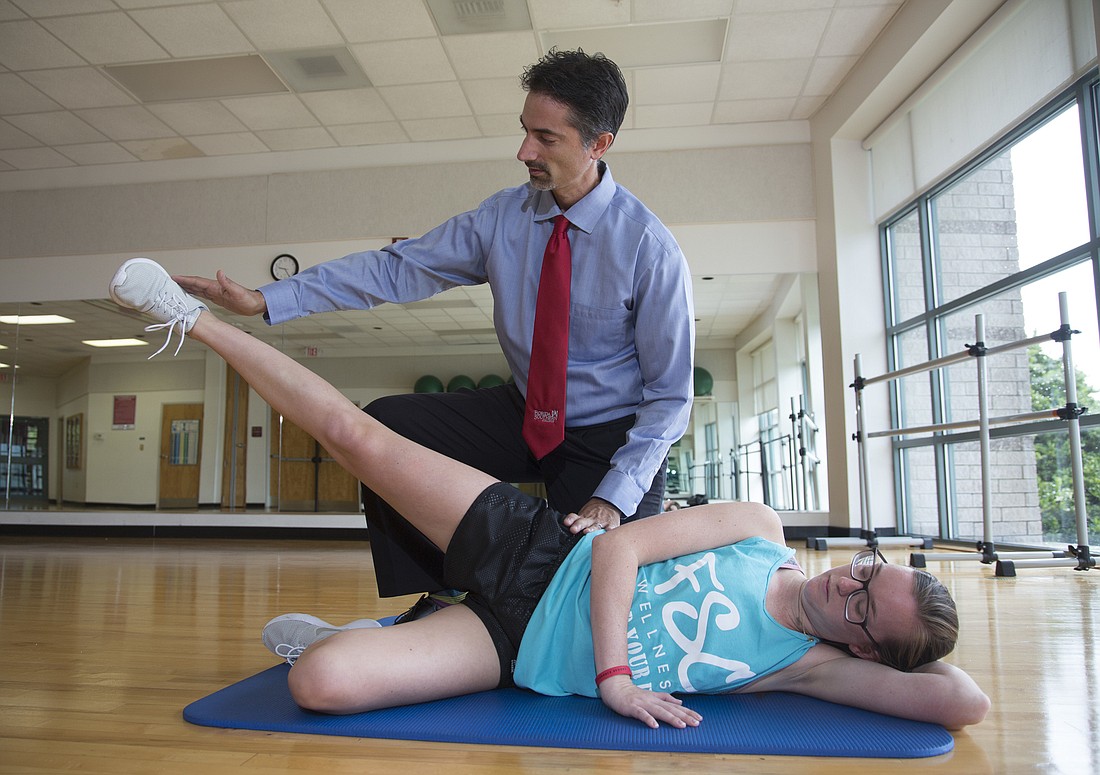- July 26, 2024
-
-
Loading

Loading

Starting a new academic program at a top-ranked private college is no easy task. There’s millions of dollars needed for a facility, quality faculty can be difficult to find and community partners are a big part of the startup phase.
Those are some of the challenges facing Lakeland’s Florida Southern College, as it works to launch its Doctor of physical therapy program, scheduled for fall 2019.
The college found a need in the medical and health care community for more physical therapists as baby boomers age, veterans need assistance and Florida sees an exponential growth in its population. “We look for programs that fit our mission, are in high demand and make sense financially,” says Florida Southern College Provost Kyle Fedler.
That need in Polk County is particularly acute: The county has the fourth lowest physical therapist distribution per 100,000 people in Central Florida — despite having the fourth highest county population in the area, according to U.S. Census Bureau data.
“We saw a huge need,” says Fedler. “We looked at other programs in the area, like schools in Tampa and Orlando, and there are not enough programs to meet the need.”
'It will be several years before we recoup our startup costs.' Kyle Fedler, Florida Southern College
This is the largest upfront investment FSC has made for an academic program — $5 million for the property and facilities and $1 million for equipment. Fedler expects about 34 students to graduate from the program, which is a developing program seeking accreditation, in its inaugural year. “The upfront startup cost is large. We have to pay (the faculty) well. It’s a big investment,” Fedler says. “It will be several years before we recoup our startup costs.”
Having a strong advisory board comprised of local medical facility staff is a key move that will help catapult the program, say college officials. Mike Bonner, lead physical therapist at Watson Clinic, one of the partners, says he is excited to work with FSC. “They have done an outstanding job in involving the local PT community to elicit feedback on program development and expectations,” he explains. “While the local PT community provides clinical internships to their students, FSC is working to provide available education to the therapists.”
Partnering with Watson Clinic and Lakeland Regional Health Medical Center will provide students with clinical sites during the two-and-a-half-year program. Student annual tuition will be $34,990. There will be eight faculty members as well as support staff. And the program will include a local pro bono clinic for the community.
Lakeland Regional Health Chief Rehabilitation Officer Jill Haladay says working with the FSC PT program offers a great opportunity to better meet the health care needs of the community. “It will help us recruit local physical therapy talent by forming relationships with students,” says Haladay.
One thing that will make their experience unique is the opportunity for students to work in acute care shadowing and observing other therapists, doctors and nurses. “Acute care is the perfect setting for exposure to the heath care team,” she adds.
Students will also be doing clinical internships at the Bannasch Institute, a 32-bed inpatient rehab facility. “We love student involvement,” Haladay says. “It forces you to stay on your toes.”
Fedler says they have a good relationship with local hospitals and clinics, and he wants the program’s students and FSC as a whole to have a positive impact on society. Job placement shouldn’t be an issue once students graduate due to the high demand of therapists.
Florida Southern, founded in 1883 and now with 2,500 undergrads and 440 graduate students, sees more growth on the horizon. The school is adding a Doctor of nursing and Master of psychology, for example. The School of Education is growing as well, with a Master of educational leadership, Doctor of education and Doctor of educational leadership.
Education Dean Tracey Tedder says they are all unique programs. “They help prepare students for the next step in their career,” she says. “We try to keep a close ear on the local needs from the school district. It’s changing so fast. We try to be mindful of new trends.”
FSC prides itself in collaborating between majors across the campus. Adds Tedder “It enhances the programs, the faculty are doing new things and it has a huge impact on everyone. We have really well-rounded graduates and faculty.”
(This story was updated to reflect that the Doctor of physical therapy program is a developing program seeking accreditation.)